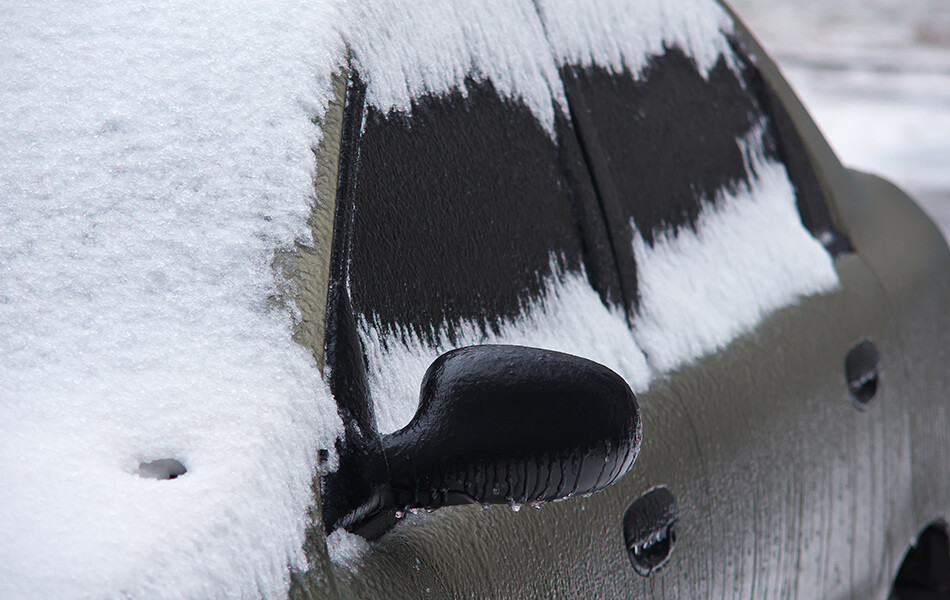Snow, ice, and freezing temperatures are common during a Colorado winter. We’ve already seen our share of blizzards just this past year alone. It goes without saying that driving in such conditions can be difficult and dangerous, but what about the damage that can happen to your car after a storm? So what is Mag Chloride? Magnesium chloride is a common compound used to de-ice roads during the winter, but if left on your vehicle, it can cause rust and corrosion. Here are a few tips for caring for your car during the months when mag chloride is present on the roads.
1. Wash Your Vehicle Often
The best way to get mag chloride residue off your car is soap, water, and a little vinegar. Start by soaping down your vehicle to get dirt and mud off, then mix equal parts vinegar with equal parts water and scrub the mag chloride off with a soft sponge. Just be sure you’re using auto-approved products that won’t damage your exterior.
2. Clean the Undercarriage
The most common areas that suffer rust damage are the wheel wells and underside of your vehicle. Be sure when you’re cleaning your car that you’re paying special attention to these areas. There are several products you can use specifically for undercarriage washing, and also wheel well cleaners and brushes to get into the tight spaces.
3. Avoid Driving in Storms
This one goes without saying, but if you can avoid driving during icy and snowy conditions, you’ll avoid the mag chloride altogether. This is a helpful tip when the mag chloride is being put down fresh, but note that it does stay on roads even after snowstorms, so washing your car in the winter is still important even if you don’t drive that often.
4. Wax
Mag chloride causes rust to exposed areas of metal in your vehicle. Prevent this by sealing your car’s exterior with a heavy-duty wax. There are many products available, and wax can be easily applied in your own garage. If your car has scratches, dents, or exposed paint, also consider getting these repaired before the mag chloride season to avoid more costly damages later.
Though mag chloride can literally be a lifesaver when it comes to icy roads, it can also cause significant vehicle damage if left on cars. We hope these tips help you to care for your car during the sloppiest of the winter months. From all of us here at Quick-Set Auto Glass, drive safely out there!

